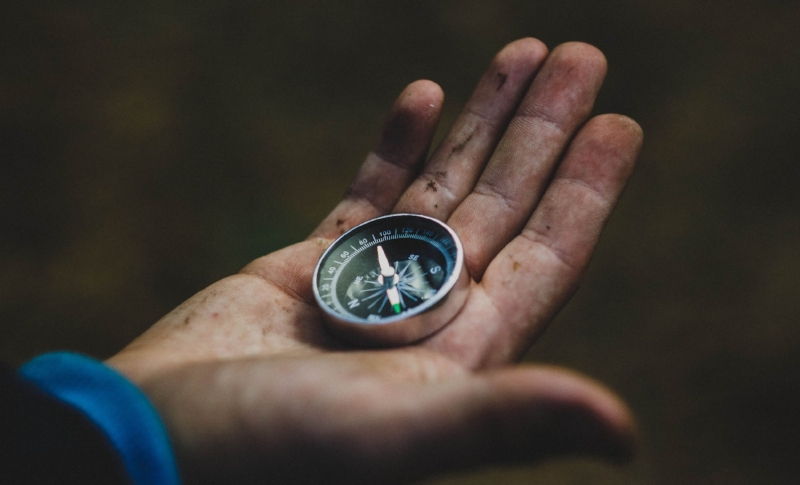Four questions to clarify your direction
From the conversations I’ve had about purpose and meaningful work there are a few recurring themes. If you’re unsure about your next direction and want to get clearer, try asking yourself the questions below. Even better, go through them with a friend. Honest conversation will take you further than thinking alone.
1. Set your direction
“The questions you ask are more important than the answers you get.”
– Sophie Howarth, Co-Founder, School of Life
Sophie Howarth co-founded The School of Life with Alain de Botton. After that she founded The Store for the Mind and is now a Faculty Lead at social innovation course, Year Here. In our interview about purpose, this quote about the questions we ask ourselves really stood out. It’s an indication of our preoccupations, the issues that most occupy our minds. Unless these questions are heavily guided by fear, they are a good indication of our areas of curiosity, and that is as good a starting point as any for finding your direction.
What questions are you asking yourself at the moment?
2. Decide what to keep and what to leave behind
“Everything I've done has built on the last thing. With each new job I always take something with me and I leave something behind.”
– Arielle Tannenbaum, Community Lead at Buffer
Arielle Tannenbaum leads community strategy at Buffer. If that sounds to you like she’s had a clear and obvious career path, you’d be wrong. Before Buffer, Arielle struggled to find her direction and went through several different career options in psychology, health coaching and at a non-profit. None of these quite seemed to fit. Ultimately she found a sense of fulfilment in her work by learning from each past job and refining as she went, deciding what to keep and what to leave behind.
From your current setup, what would you like to take with you? And what would you leave behind?
3. Name your barriers
“You think you’re surrounded by walls made of stone and concrete or cement, but those walls are made of Styrofoam. You can kick through them”.
– Miles Hilton Barber, blind pilot and adventurer
Miles is one of the most inspiring people I’ve ever met. He went blind in his twenties, which (at the time) destroyed his dream of becoming a pilot. For decades he lived as well as he thought a blind man could and settled for an average sort of work life. It wasn’t until his brother, who was also blind, built his own boat and sailed it across the Southern Ocean to Australia that Miles began to realise he could do more with his life. He recognised that he had created many of his own barriers in life and set out to break through them. He eventually became the first blind man to fly halfway round the world (from London to Sydney in a microlight).
Are there any walls keeping you trapped right now? What are they and how can you break through them?
4. See the potential
“You always think about what could go wrong, but what could go right?”
- Phil Krynski, explorer, marketer, currently in Sri Lanka
Phil was working in content marketing in London where he had settled for two years after his travels. But increasingly he felt that his life in London lacked depth and it was something he couldn’t ignore. After one too many grey commutes through the city, he admitted to himself how much he had been craving an outdoor life and a closer sense of community. He was interested in Sri Lanka and took the initiative to contact several retreats to see if they needed marketing support. His initiative paid off and for the last few months he has been living a life of surfing and yoga on the island. When I interviewed him I was impressed at his decisiveness and drive to follow through on such a radical life change. He reminded me that, all to often, we fixate on the things that could go wrong as a result of our decisions and ignore what could go right.
What could go right about the next direction you want to take?
The quotes above come from interviews on finding purposeful work. Over the past six months I’ve interviewed an array of people about their career and work choices, about the times they’ve felt lost or directionless, and about how they have struggled – and sometimes succeeded – in finding purposeful work.






